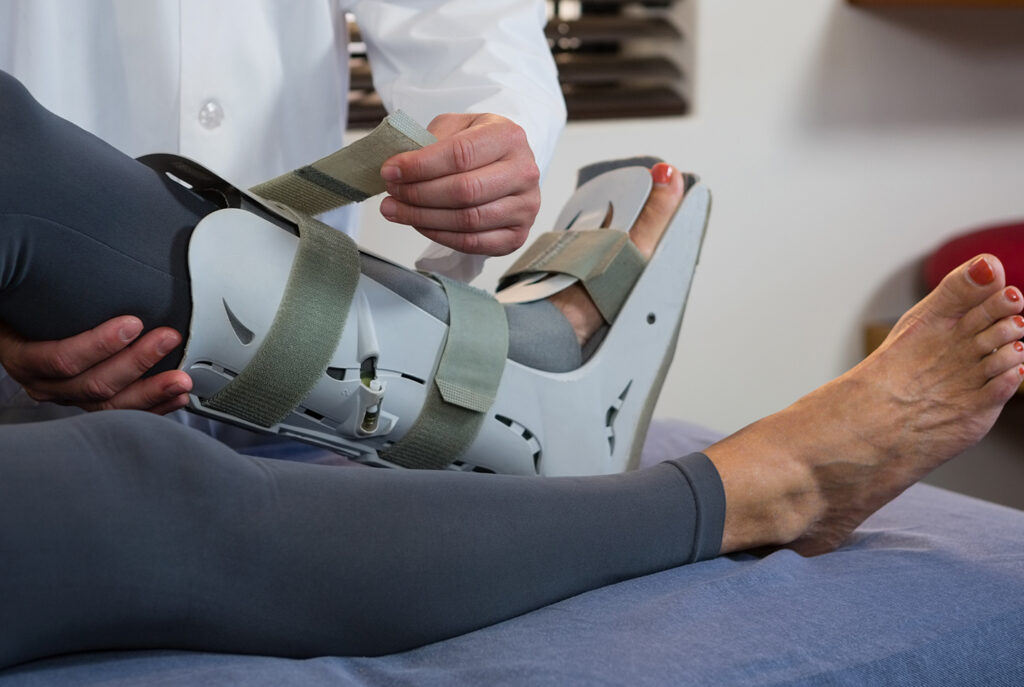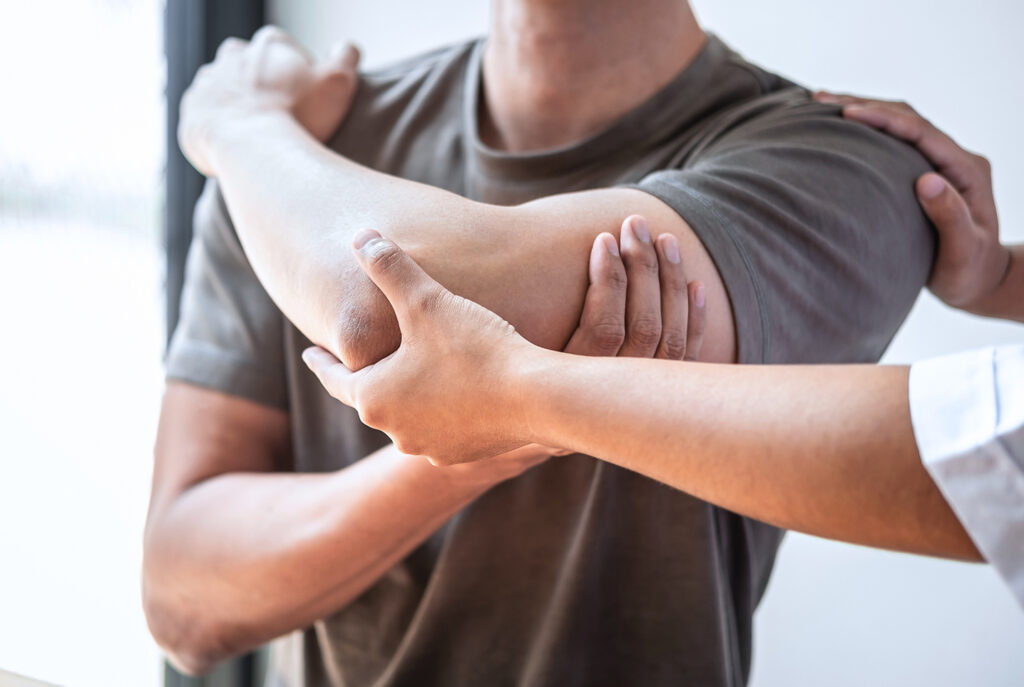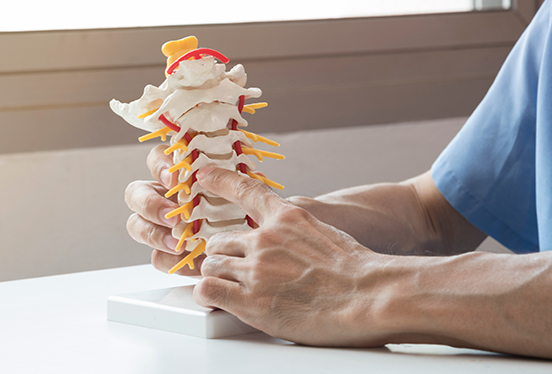Physical Therapy
- Services
- Physical Therapy
The Comprehensive Benefits of Physical Therapy
Physical therapy offers a wide range of benefits that go beyond just treating injuries. It plays a vital role in helping individuals recover, manage chronic conditions, and improve overall physical health. Here’s a detailed look at how physical therapy can enhance your well-being:
Improved Muscle Function
One of the key benefits of physical therapy is the improvement and maintenance of muscle function. Through a series of targeted exercises, physical therapy engages your muscles, strengthening them and enhancing their integrity. This is crucial not only for recovery from injuries but also for preventing muscle deterioration during periods of inactivity. By improving muscle function, physical therapy helps you move more efficiently and reduces the risk of future injuries.
Greater Flexibility
Physical therapy is highly effective in increasing joint flexibility and range of motion. By working on stretching and mobilizing your muscles and joints, physical therapy can significantly improve your quality of life. Increased flexibility allows you to move more freely and reduces the likelihood of strains or sprains. Whether you’re recovering from an injury or simply looking to enhance your physical abilities, physical therapy can help you achieve greater flexibility.
Pain Relief
Chronic pain can significantly impact your daily life, but physical therapy offers a natural way to reduce pain. By addressing the underlying causes of pain, such as inflammation or muscle imbalances, physical therapy provides long-term relief without the need for medication. Techniques like manual therapy, therapeutic exercises, and modalities such as ultrasound or electrical stimulation are used to alleviate pain and promote healing.
Stress Relief
Physical therapy not only benefits your physical health but also contributes to stress relief. Engaging in regular physical activity through therapy helps lower cortisol levels, the hormone associated with stress. High cortisol levels are linked to various health issues, including high blood pressure, cardiovascular disease, and reduced cognitive function. By reducing pain and improving your overall physical condition, physical therapy can help you feel more relaxed and reduce stress.
A Better Understanding of Your Condition
Physical therapy provides you with a deeper understanding of your specific condition. During your sessions, your therapist will educate you on what caused your injury, how it can be treated, and what you can do to prevent future issues. This knowledge empowers you to take control of your health and make informed decisions about your treatment.
A Stronger Core
Core stability is a fundamental aspect of physical therapy. A strong core supports your spine, improves posture, and enhances overall body mechanics. Physical therapy focuses on strengthening your abdominal muscles, lower back, and pelvis, providing a solid foundation for better balance and stability. A stronger core not only reduces the risk of back pain but also supports your entire body during movement.
Less Stress on Joints
Joint pain is a common issue that can be effectively managed through physical therapy. By learning how to distribute weight and pressure evenly across your joints, you can reduce the strain on your knees, hips, and ankles. Physical therapy teaches you proper movement patterns and exercises that strengthen the muscles around your joints, helping to alleviate pain and improve mobility.
Relief Without Medication or Surgery
One of the most significant benefits of physical therapy is its ability to provide relief without relying on medication or surgery. Through targeted exercises and therapeutic techniques, physical therapy addresses the root causes of pain and dysfunction, allowing for natural recovery. This conservative approach is not only safer but also more cost-effective, helping you avoid the risks associated with medications and invasive procedures.
An Active Role in Your Recovery
Physical therapy encourages you to take an active role in your recovery. Unlike passive treatments, physical therapy requires your participation, which can lead to better outcomes. By actively engaging in your treatment plan, you can track your progress, make necessary adjustments, and take ownership of your health journey. This involvement fosters a sense of empowerment and motivation, which is crucial for long-term success.
Reduced Risk of Re-Injury
Physical therapy plays a critical role in reducing the risk of re-injury. By strengthening and toning muscles, improving flexibility, and enhancing coordination, physical therapy helps build a more resilient body that can withstand physical demands. Through personalized treatment plans and exercises, physical therapy ensures that your body is better equipped to handle the stresses of daily activities and reduces the likelihood of future injuries.
Common Diagnoses Treated with Physical Therapy
Physical therapy is a versatile treatment that can be used to address a wide range of conditions, including:
Achilles Tendinitis: Inflammation of the Achilles tendon, often caused by overuse, can be treated with targeted stretching and strengthening exercises.
ACL Injury Prevention: Strengthening the muscles around the knee can prevent ACL injuries, particularly in athletes.
Adhesive Capsulitis (Frozen Shoulder): A condition characterized by stiffness and pain in the shoulder joint, often treated with stretching and manual therapy.
Ankle Sprains: Ligament injuries in the ankle are treated with exercises to restore strength and stability.
Carpal Tunnel Syndrome: Nerve compression in the wrist can be managed with splinting, stretching, and strengthening exercises.
Degenerative Disc Disease: Physical therapy can help manage the pain and improve the mobility associated with degenerative changes in the spine.
Headaches: Certain types of headaches, particularly tension headaches, can be relieved with physical therapy techniques focused on the neck and upper back.
Iliotibial Band Syndrome: Common in runners, this condition involves pain along the outer thigh and is treated with stretching and strengthening.
Lymphedema Management: Specialized techniques are used to reduce swelling and manage fluid retention.
Osteoporosis: Weight-bearing exercises and strength training help improve bone density and reduce the risk of fractures.
Patellofemoral Pain Syndrome: Knee pain related to the alignment of the kneecap is treated with exercises to balance muscle strength and improve alignment.
Plantar Fasciitis: Heel pain caused by inflammation of the plantar fascia is managed with stretching, strengthening, and footwear advice.
Post-Cancer Rehabilitation: Physical therapy helps restore function and manage the side effects of cancer treatment.
Posterior Tibialis Tendinitis: Inflammation of the posterior tibial tendon, which supports the arch of the foot, is treated with strengthening and stretching.
Pregnancy-Related Low Back Pain: Exercises and education help manage the back pain associated with pregnancy.
Spinal Stenosis: Narrowing of the spinal canal can cause pain and weakness, managed through strengthening and flexibility exercises.
Tarsal Tunnel Syndrome: Nerve compression in the ankle is treated with exercises, splinting, and sometimes manual therapy.
Muscular Torticollis: A condition in infants causing the head to tilt to one side, treated with stretching and positioning.
Physical therapy offers a comprehensive approach to improving your health, whether you’re recovering from an injury, managing a chronic condition, or looking to enhance your physical abilities. With benefits that include pain relief, improved muscle function, and a reduced risk of re-injury, physical therapy empowers you to take control of your health and live life to the fullest.
Movement Made Possible
Our experienced physical therapists can manage and control painful conditions while promoting musculoskeletal, cardiovascular and cognitive health.
Physical therapy offers a comprehensive approach to improving your health, whether you’re recovering from an injury, managing a chronic condition, or looking to enhance your physical abilities. With benefits that include pain relief, improved muscle function, and a reduced risk of re-injury, physical therapy empowers you to take control of your health and live life to the fullest.
Whether you’re a professional athlete who’s suffered an injury or an orthopedic patient who needs assistance following surgery, we are here to help.
From assessing nagging pain to advanced outpatient physical therapy, we provide therapy for all musculoskeletal issues related to the spine and extremities. Our services include outpatient orthopedic physical therapy, post-operative care, spine care and rehabilitation, sports rehabilitation, injury prevention, and work-related rehabilitation.









